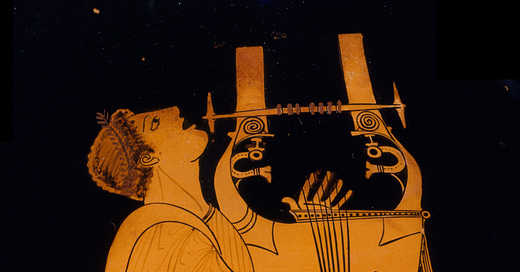Audio Versions of the Hymn to Pluto
Ancient Greek and English, plus some helpful Pluto/Hades resources
Each time I release a new translation of an Orphic Hymn, I record versions of it in Greek and English. I always give the same caveat about the pronunciation of ancient Greek, which you can scroll down to below.
What I love to listen for in the Greek (besides those words like “Demeter” or “Hades” or “Eleusis” that even English-speakers might recognize) is the tone and feeling of the Hymn. In this one, listen for all the AH and O and AW sounds that resonate throughout the Hymn. To me, there is a sense of wonder and profundity that the Greek has—very different, than, say, the Hymn to Ares/Mars or Hymn to Selene/Moon, each of which has a tone that fits the personality of its deity.
I hope you enjoy these recordings. As always, please lmk if you have suggestions for what would make these more usable/better. I’m always open to feedback! (And I love receiving photos of folks using the Hymns in their personal practice!)
Also: a reminder that I periodically update my bibliographical/resource post with articles, audio-visuals, etc related to each deity and to the Orphic Hymns more generally. I just added a few resources for Pluto/Hades, for those of you who wish to explore some of the most accessible resources I used during my translation.
Yours in Earth and Starry Sky,
✨Kristin






